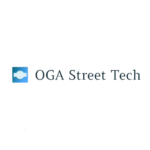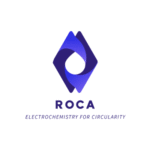
$250,000 to Launch your Climate Change Solution!
What is the Wilkes Climate Launch Prize?
The Wilkes Climate Launch Prize highlights top global ideas for combating climate change. Each year, by elevating and honoring innovative climate solutions, this University of Utah prize aims to accelerate worldwide progress and encourage technological advances. Our goal is to develop effective climate change solutions quickly for the benefit of people and ecosystems worldwide.
Process & Review Timeline:
- Phase I: First round submissions Due February 28, 2025.
- Phase II: Finalists submit second-round application by May 13th. Pitch in-person at the Wilkes Climate Summit at the University of Utah, May 15, 2025.
- Award: Announced in September 2025.
2025 Prize Finalists
Location: Kathmandu, Nepal
buildupnepal.com
 Build up Nepal is transforming the construction industry in South Asia by replacing polluting coal-fired bricks with climate-friendly eco-brick technology that reduces CO2 emissions by 75%, air pollution by 90%, cuts construction costs by up to 40%, and is disaster-resilient. By empowering 200 local entrepreneurs, the solution has already built 11,000 homes, avoided 111,000 tonnes of CO2 emissions, and created 1,600 green jobs.
Build up Nepal is transforming the construction industry in South Asia by replacing polluting coal-fired bricks with climate-friendly eco-brick technology that reduces CO2 emissions by 75%, air pollution by 90%, cuts construction costs by up to 40%, and is disaster-resilient. By empowering 200 local entrepreneurs, the solution has already built 11,000 homes, avoided 111,000 tonnes of CO2 emissions, and created 1,600 green jobs.
Location: Raleigh, North Carolina
denovofoodlabs.com
 De Novo Foodlabs is revolutionizing food protein production by using precision fermentation (PF) to create essential proteins with engineered microorganisms—no animals required. Our first focus is milk proteins, with high-yield yeast strains already developed for our launch product. Now, we’re taking the next leap: expanding our PF platform to not just lower emissions, but to actively capture and remove carbon dioxide from the atmosphere. This breakthrough would make our process net carbon negative, enabling protein production that helps reverse climate change. Our technology also paves the way for the broader PF industry to become a powerful tool for carbon capture.
De Novo Foodlabs is revolutionizing food protein production by using precision fermentation (PF) to create essential proteins with engineered microorganisms—no animals required. Our first focus is milk proteins, with high-yield yeast strains already developed for our launch product. Now, we’re taking the next leap: expanding our PF platform to not just lower emissions, but to actively capture and remove carbon dioxide from the atmosphere. This breakthrough would make our process net carbon negative, enabling protein production that helps reverse climate change. Our technology also paves the way for the broader PF industry to become a powerful tool for carbon capture.
Location: Jharkhand, India
mlinda.org
 Mlinda's solar mini-grid-based model addresses rural poverty and climate change by integrating renewable energy with economic development. By enabling the setup of micro-enterprises powered by clean energy, the project enhances livelihoods while cutting CO2 emissions. Key innovations include its franchise-based replication model and comprehensive ecosystem approach, combining financial inclusion, capacity building, and market linkages. Piloted successfully, the initiative has already reduced emissions by 285 kg CO2 per household annually and increased incomes by over 50%. Scaling to 750 villages will catalyze sustainable development for vulnerable communities while demonstrating a replicable solution to global climate challenges.
Mlinda's solar mini-grid-based model addresses rural poverty and climate change by integrating renewable energy with economic development. By enabling the setup of micro-enterprises powered by clean energy, the project enhances livelihoods while cutting CO2 emissions. Key innovations include its franchise-based replication model and comprehensive ecosystem approach, combining financial inclusion, capacity building, and market linkages. Piloted successfully, the initiative has already reduced emissions by 285 kg CO2 per household annually and increased incomes by over 50%. Scaling to 750 villages will catalyze sustainable development for vulnerable communities while demonstrating a replicable solution to global climate challenges.
Location: Lafayette, Louisiana
ogastreettech.io
 OGA Street Tech's SustainaStone is revolutionizing concrete, an industry responsible for 8-10% of global CO2emissions. Unlike traditional alternatives, our instantly reusable concrete creates a circular material system, eliminating the continuous production-disposal cycle. Each reuse avoids 110 kg of CO2 per cubic meter, with highly cautious estimates projecting prevention of 1.2 million metric tons annually by 2030 and 125+ million by 2050.
OGA Street Tech's SustainaStone is revolutionizing concrete, an industry responsible for 8-10% of global CO2emissions. Unlike traditional alternatives, our instantly reusable concrete creates a circular material system, eliminating the continuous production-disposal cycle. Each reuse avoids 110 kg of CO2 per cubic meter, with highly cautious estimates projecting prevention of 1.2 million metric tons annually by 2030 and 125+ million by 2050.
Location: Alameda, California
 Roca is transforming wastewater treatment through a novel electrochemical process. Their technology addresses two major climate challenges: (1) reducing nitrogen pollution that leads to eutrophication and nitrous oxide (N₂O) emissions, and (2) decarbonizing fertilizer production by replacing energy-intensive Haber-Bosch ammonia synthesis with ammonia produced from wastewater.
Roca is transforming wastewater treatment through a novel electrochemical process. Their technology addresses two major climate challenges: (1) reducing nitrogen pollution that leads to eutrophication and nitrous oxide (N₂O) emissions, and (2) decarbonizing fertilizer production by replacing energy-intensive Haber-Bosch ammonia synthesis with ammonia produced from wastewater.
Location: Cairo, Egypt; New York, US
shamsinasolar.com
 Shamsina manufactures affordable solar water heaters and provides community PV systems for low-income Egyptian households. Our target 10 million+ households currently using manual water heating methods (gas tanks, kerosene, fires) and families spending roughly half their monthly income on energy. At scale, our solution can reduce CO2 emissions by over 20 million tonnes annually. Beyond environmental impact, we deliver multiple poverty-reduction benefits: saving women's time spent manually heating water, improving health and safety, and replacing volatile energy bills with stable, lower costs‚ and helping families break poverty cycles through increased financial stability.
Shamsina manufactures affordable solar water heaters and provides community PV systems for low-income Egyptian households. Our target 10 million+ households currently using manual water heating methods (gas tanks, kerosene, fires) and families spending roughly half their monthly income on energy. At scale, our solution can reduce CO2 emissions by over 20 million tonnes annually. Beyond environmental impact, we deliver multiple poverty-reduction benefits: saving women's time spent manually heating water, improving health and safety, and replacing volatile energy bills with stable, lower costs‚ and helping families break poverty cycles through increased financial stability.
Location: Los Angeles, California
symmetrywood.com
 The harvest of tropical hardwoods directly releases at least 1.05 billion tons of CO2 emissions every year globally (Pearson, 2017). Plus, a forest degraded by loggers is 8x more likely to be completely deforested, leading to further emissions. To address this problem, Symmetry is creating a new type of high-performance wood from food waste, PyrusTM, that involves no tree cutting or petrochemicals like epoxies. If PyrusTM replaced 25% of global annual tropical hardwood imports, it could prevent an amount of CO2 -eq nearly 5x the combined yearly GHG emissions from cement and steel production in the U.S.
The harvest of tropical hardwoods directly releases at least 1.05 billion tons of CO2 emissions every year globally (Pearson, 2017). Plus, a forest degraded by loggers is 8x more likely to be completely deforested, leading to further emissions. To address this problem, Symmetry is creating a new type of high-performance wood from food waste, PyrusTM, that involves no tree cutting or petrochemicals like epoxies. If PyrusTM replaced 25% of global annual tropical hardwood imports, it could prevent an amount of CO2 -eq nearly 5x the combined yearly GHG emissions from cement and steel production in the U.S.
Semi-Finalists
Location: Andhra Pradesh, India
carbonin.earth
 To meet the massive challenge of removing a trillion tons of carbon from the atmosphere by the end of this century, we need solutions that are scalable, affordable, and ready to deploy today. CarbonIn Earth is pioneering a breakthrough carbon removal approach that transforms agricultural and organic waste into stable carbon forms for long-term storage. Unlike traditional methods that risk re-releasing carbon back into the atmosphere, our process locks it away by mimicking nature’s own preservation strategies, ensuring it stays out of the carbon cycle for thousands of years. By tapping into waste streams and using globally available storage environments, we’re not just reducing emissions — we’re building a more sustainable, circular, and climate-resilient future.
To meet the massive challenge of removing a trillion tons of carbon from the atmosphere by the end of this century, we need solutions that are scalable, affordable, and ready to deploy today. CarbonIn Earth is pioneering a breakthrough carbon removal approach that transforms agricultural and organic waste into stable carbon forms for long-term storage. Unlike traditional methods that risk re-releasing carbon back into the atmosphere, our process locks it away by mimicking nature’s own preservation strategies, ensuring it stays out of the carbon cycle for thousands of years. By tapping into waste streams and using globally available storage environments, we’re not just reducing emissions — we’re building a more sustainable, circular, and climate-resilient future.
Location: Houston, Texas
mati.earth
 Mati Carbon has developed (mati), a groundbreaking enterprise resource planning (ERP) system that revolutionizes Enhanced Rock Weathering (ERW) operations for smallholder farmers in the Global-South. This bespoke tech stack integrates proprietary smartphone apps, blockchain-secured carbon credit traceability, and AI-driven verification to ensure precise monitoring, reporting, and verification (MRV). By unlocking access to ERW for smallholders, Mati enables scalable carbon removal while improving soil health and crop yields and increasing incomes. Validated by leading institutions, Mati has already delivered $1 million+ in increased income in 2024 and deployed 100,000+ tons of basalt with plans to scale to megaton removals by 2030.
Mati Carbon has developed (mati), a groundbreaking enterprise resource planning (ERP) system that revolutionizes Enhanced Rock Weathering (ERW) operations for smallholder farmers in the Global-South. This bespoke tech stack integrates proprietary smartphone apps, blockchain-secured carbon credit traceability, and AI-driven verification to ensure precise monitoring, reporting, and verification (MRV). By unlocking access to ERW for smallholders, Mati enables scalable carbon removal while improving soil health and crop yields and increasing incomes. Validated by leading institutions, Mati has already delivered $1 million+ in increased income in 2024 and deployed 100,000+ tons of basalt with plans to scale to megaton removals by 2030.
Location: Dar es Salaam, Tanzania
novfeed.com
 NovFeed is an innovative climate solution that transforms the aquaculture sector by using fermentation technology to convert agricultural waste into single-cell protein (SCP). SCP is a sustainable, cost-effective alternative to traditional fishmeal, addressing critical issues such as overfishing, high feed costs, and dependence on imported raw materials. The process emits 50% less CO2 than fishmeal production, contributing to environmental sustainability and promoting a circular economy. Focusing on small-scale fish farmers in Tanzania, this solution aims to scale up production, improve farmer livelihoods, and foster climate resilience while reducing the ecological impact of aquaculture.
NovFeed is an innovative climate solution that transforms the aquaculture sector by using fermentation technology to convert agricultural waste into single-cell protein (SCP). SCP is a sustainable, cost-effective alternative to traditional fishmeal, addressing critical issues such as overfishing, high feed costs, and dependence on imported raw materials. The process emits 50% less CO2 than fishmeal production, contributing to environmental sustainability and promoting a circular economy. Focusing on small-scale fish farmers in Tanzania, this solution aims to scale up production, improve farmer livelihoods, and foster climate resilience while reducing the ecological impact of aquaculture.
Location: Dhaka, Bangladesh
palkimotors.com
 Palki Motors is pioneering affordable, scalable electric vehicles (EVs) in Bangladesh to decarbonize transportation and uplift communities. Each EV, priced at $10,000, offsets 10 MT of CO2 annually and is 64% cheaper than imports. By 2027, we aim to deploy 2,400 EVs, avoiding 24,000 MT of CO2 emissions yearly, scaling to 15,000 units by 2030 for a 150,000 MT reduction annually. Innovations include a patent-pending microfactory model that minimizes costs and a solar-powered charging network for accessibility in off-grid areas. Our solution merges local manufacturing and renewable energy to transform emerging markets into leaders in sustainable mobility.
Palki Motors is pioneering affordable, scalable electric vehicles (EVs) in Bangladesh to decarbonize transportation and uplift communities. Each EV, priced at $10,000, offsets 10 MT of CO2 annually and is 64% cheaper than imports. By 2027, we aim to deploy 2,400 EVs, avoiding 24,000 MT of CO2 emissions yearly, scaling to 15,000 units by 2030 for a 150,000 MT reduction annually. Innovations include a patent-pending microfactory model that minimizes costs and a solar-powered charging network for accessibility in off-grid areas. Our solution merges local manufacturing and renewable energy to transform emerging markets into leaders in sustainable mobility.
Location: London, UK
samudraoceans.com
 With 1.7 million km of coastline, less than 1% is actively utilized – a missed opportunity for sustainability, economic growth, and climate impact. Samudra is pioneering seaweed robotics to transform coastlines into monetizable assets through scalable seaweed farming, carbon sequestration, and regenerative aquaculture. Our AI-driven automation and robotics make seaweed cultivation efficient, low-cost, and high-yield, enabling communities to generate carbon credits, sustainable food sources, and bio-based materials. This approach not only fights climate-change (mitigation) but also creates blue-economy-jobs (adaptation).
With 1.7 million km of coastline, less than 1% is actively utilized – a missed opportunity for sustainability, economic growth, and climate impact. Samudra is pioneering seaweed robotics to transform coastlines into monetizable assets through scalable seaweed farming, carbon sequestration, and regenerative aquaculture. Our AI-driven automation and robotics make seaweed cultivation efficient, low-cost, and high-yield, enabling communities to generate carbon credits, sustainable food sources, and bio-based materials. This approach not only fights climate-change (mitigation) but also creates blue-economy-jobs (adaptation).
Location: Phoenix, Arizona
sorbiforce.com
 SorbiForce introduces a revolutionary energy storage technology that goes beyond traditional battery solutions. Our sorption-based system not only enables efficient energy storage and management but also addresses critical challenges in sustainability, supply chain independence, and safety. By utilizing naturally abundant and recyclable materials, our technology creates scalable and resilient energy systems that integrate harmoniously with the environment. SorbiForce is more than just a battery, it is a fundamentally new approach to energy, designed to empower industries, communities, and the planet with safe, long-lasting, and sustainable energy solutions. Our mission is to redefine the way we interact with energy and nature.
SorbiForce introduces a revolutionary energy storage technology that goes beyond traditional battery solutions. Our sorption-based system not only enables efficient energy storage and management but also addresses critical challenges in sustainability, supply chain independence, and safety. By utilizing naturally abundant and recyclable materials, our technology creates scalable and resilient energy systems that integrate harmoniously with the environment. SorbiForce is more than just a battery, it is a fundamentally new approach to energy, designed to empower industries, communities, and the planet with safe, long-lasting, and sustainable energy solutions. Our mission is to redefine the way we interact with energy and nature.
Location: Norman, OK, and Moshav Amirim, Israel
thermoterra.com
 Hygroscopic materials cool if moisture is released from material to air, and heats if vice versa. We use this for HVAC with almost no energy expenditure. With two connections to ambient air and two to the interior of a building or its envelope, we control temperature and humidity to reach the 'comfort zone' on demand. Regenerating the material to the state needed for upcoming weather is accomplished by exploiting changes in ambient humidity. Half the global energy consumption goes to heating and cooling; simulations and four installations indicate a savings of at least 30% for HVAC expenditure.
Hygroscopic materials cool if moisture is released from material to air, and heats if vice versa. We use this for HVAC with almost no energy expenditure. With two connections to ambient air and two to the interior of a building or its envelope, we control temperature and humidity to reach the 'comfort zone' on demand. Regenerating the material to the state needed for upcoming weather is accomplished by exploiting changes in ambient humidity. Half the global energy consumption goes to heating and cooling; simulations and four installations indicate a savings of at least 30% for HVAC expenditure.
Who is Eligible to Apply?
Organizations at all stages, both for-profits and nonprofits, anywhere in the world are eligible to submit ideas to be considered for the Wilkes Climate Launch Prize. This includes seed, pre-seed, venture-funded, publicly traded stage companies, or nonprofits.
Launch Prize Updates
Let us know if you would like to receive additional email updates about the Wilkes Prize.
2025 Wilkes Climate Launch Prize Selection Committee
The Wilkes Climate Launch Prize submissions will be reviewed and considered by some of the sharpest minds in the scientific and sustainability fields today. The top prize will be awarded to the idea with the most scalable impact, the most feasible concept, and the solution most likely to benefit communities, economies, or ecosystems. All judges serve in their personal capacity as experts in the field and do not represent their institutions in this role.














Key considerations for each criteria.
Scalable impact:
- How much greenhouse gases (MT CO2-equivalent) could be avoided from emissions or removed from the atmosphere per year in the immediate future (e.g. 2025-2027) and near-term future (e.g. around 2030)?
- What are the potentials for scaling up over the 2030-2050 timescale?
- How will the Prize lead to a transformative change in this sector?
- What is the estimated permanence of these emissions reductions or removals and what is the confidence for these estimates?
Feasibility:
- Are there demonstrations of feasibility existing? At what stage? Where?
- What is the current cost per MT CO2-equivalent? What are future estimated costs by approximately 2030?
- Explain why your team has the relevant expertise and structure to succeed.
- What are key barriers and what plans are in place to overcome barriers, constraints, risks, or trade-offs with scaling up the solution?
Co-benefits
- Will the proposed solution lead to co-benefits to communities, economies, or ecosystems?
- What is the potential for negative consequences (e.g. on communities, economies, or ecosystems) and what are solutions to mitigate them?
Who is eligible to apply for the Wilkes Climate Launch Prize?
Organizations at all stages, both for-profits and nonprofits, anywhere in the world are eligible to submit ideas to be considered for the Wilkes Climate Launch Prize. This includes seed, pre-seed, venture-funded, publicly traded stage companies, or nonprofits. Please direct any specific questions about eligibility to Kyla Welch via email at [email protected].
What format should I use to submit my pitch?
Your pitch should by typed directly into the form on the application portal. Many applicants find it easiest to type their proposal in a word document and copy/past into the form.
Are there restrictions on the use of Prize funds?
Other than a 15% cap on overhead (including indirect or F&A costs), there are no other restrictions on the use of the funds.
Is there one grand prize, or are there also smaller prizes for finalists?
There is only one grand prize to be awarded.
When exactly are First Round applications due?
All First Round submissions are due before midnight on February 28, 2025 (12:00 midnight MST)
When will I hear back about Round 2?
The Wilkes Center will accept applications through the February 28th deadline. Applicants who will move on to round 2 will be notified by the middle of April.
Can we submit multiple project ideas from the same organization?
Yes, you may submit different ideas from the same organization to be considered.
Does our organization need to have an affiliation with the University of Utah or the State of Utah?
No. The Wilkes Climate Launch Prize is open to organizations at all stages, both for-profits and nonprofits – anywhere in the world.
Who should I contact if I have additional questions?
All further questions should be submitted to Kyla Welch via email at [email protected]
Donate to the Prize
You can support transformative innovation for accomplishing solutions to climate change.
Donations to the Wilkes Center Climate Prize will go toward the prize for innovation and solutions to global climate change.


